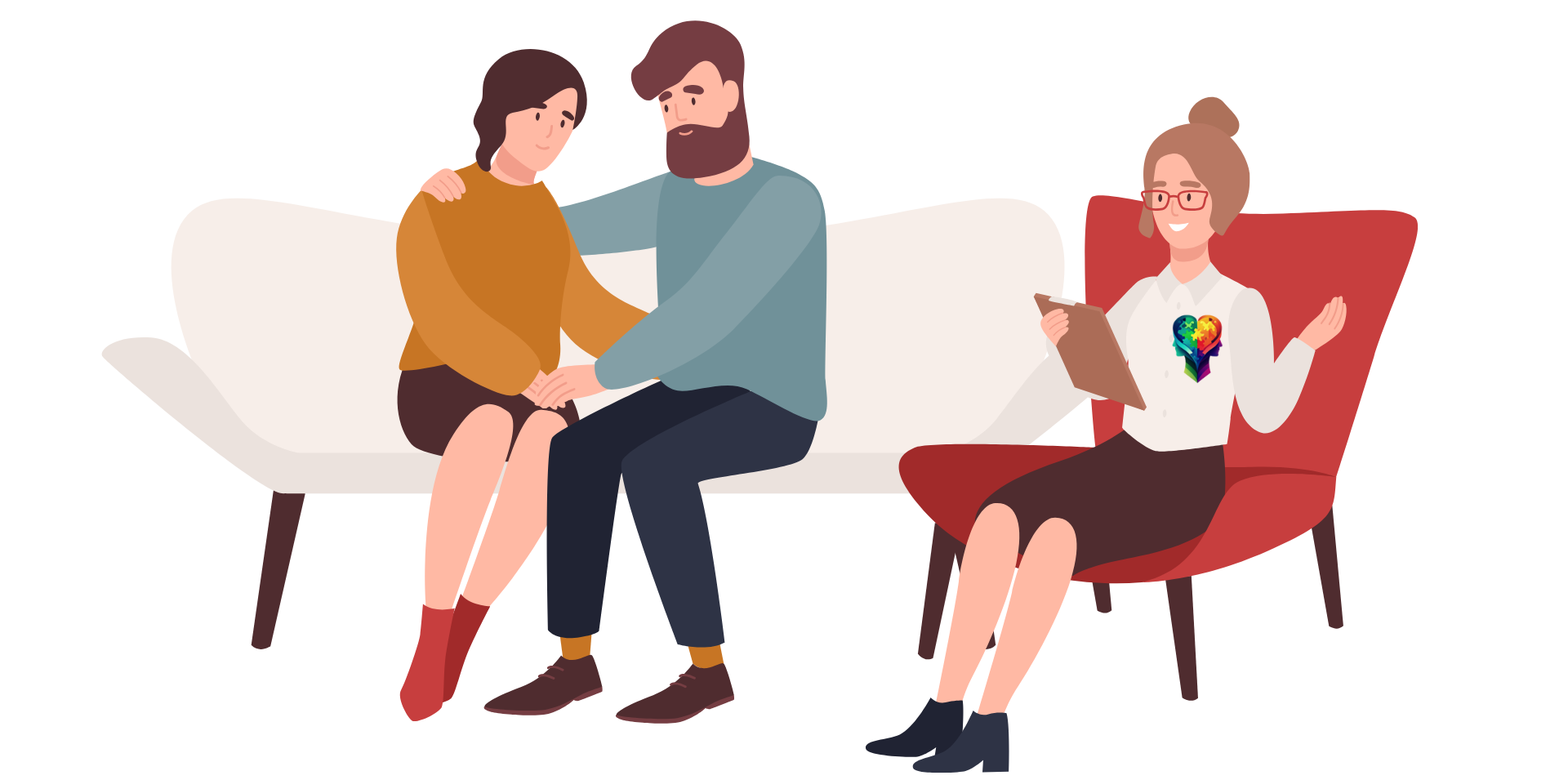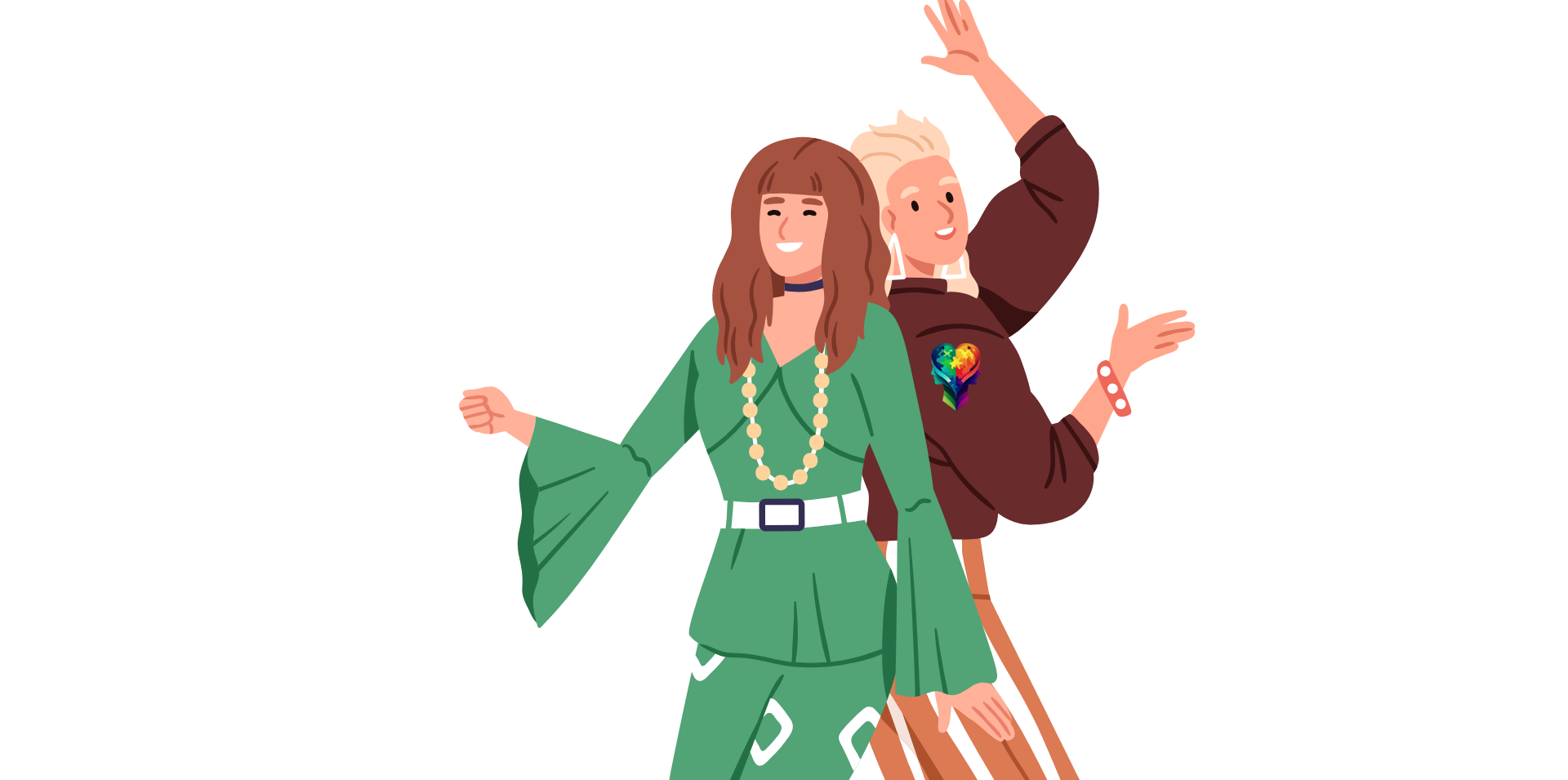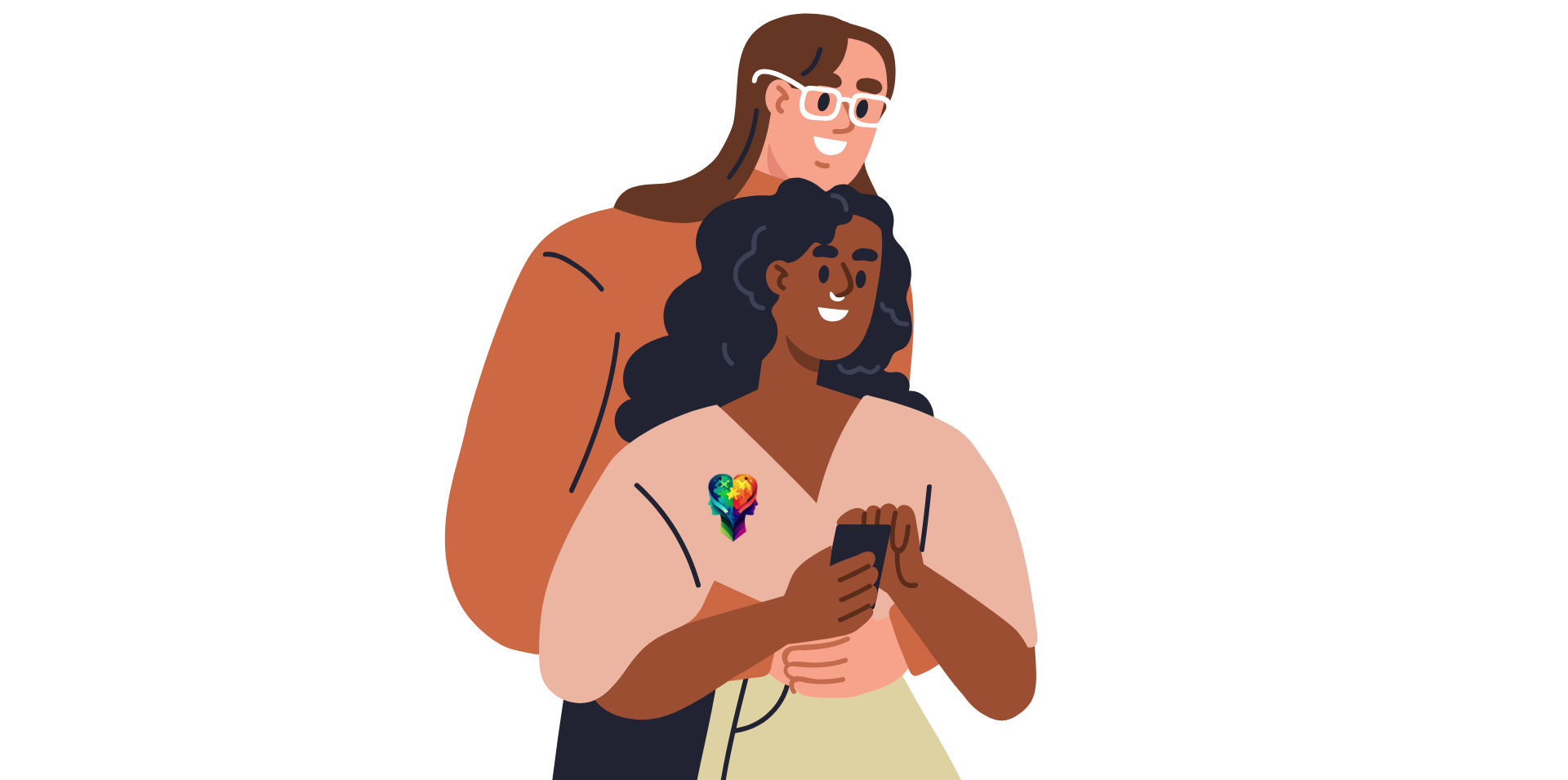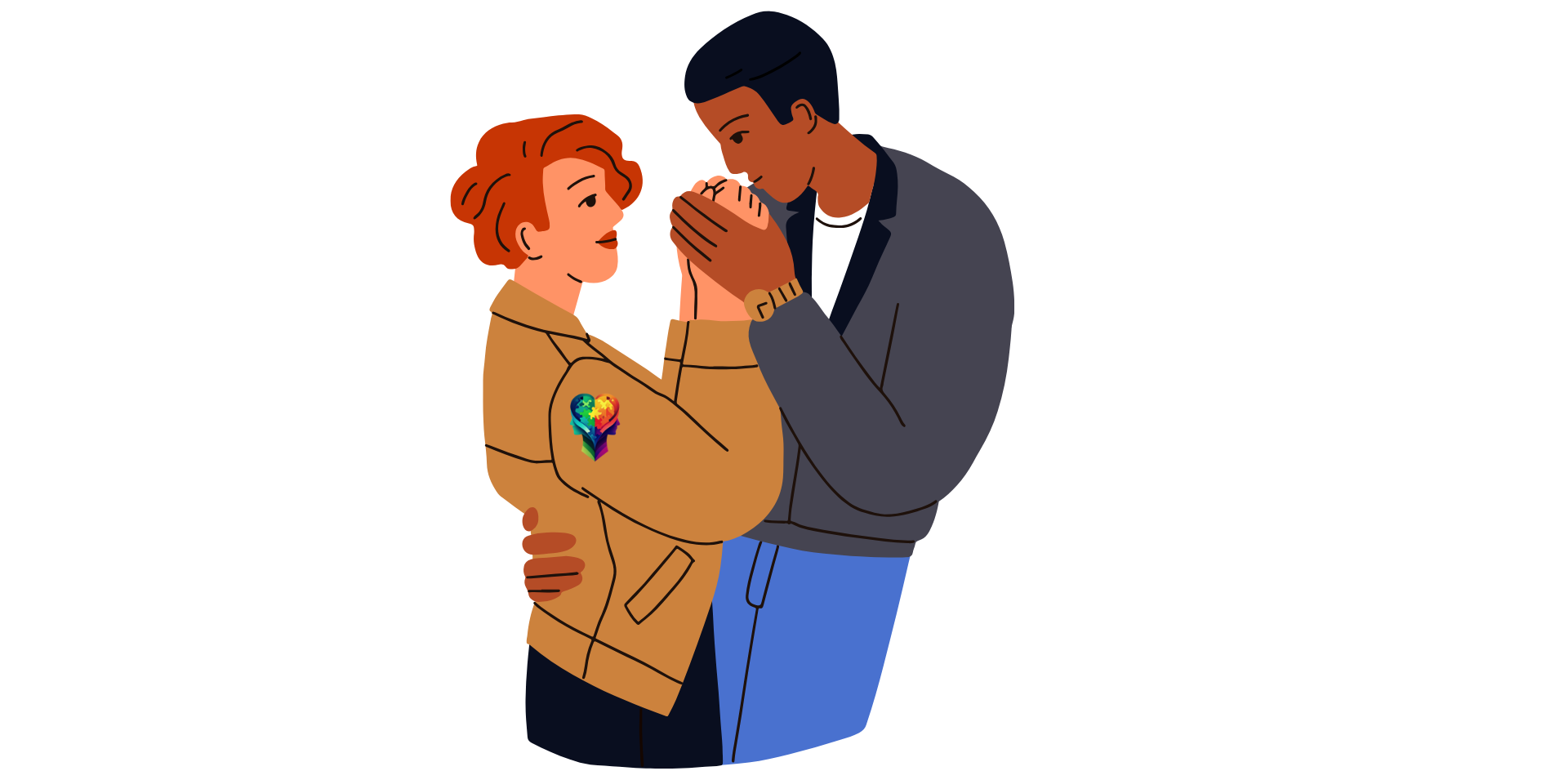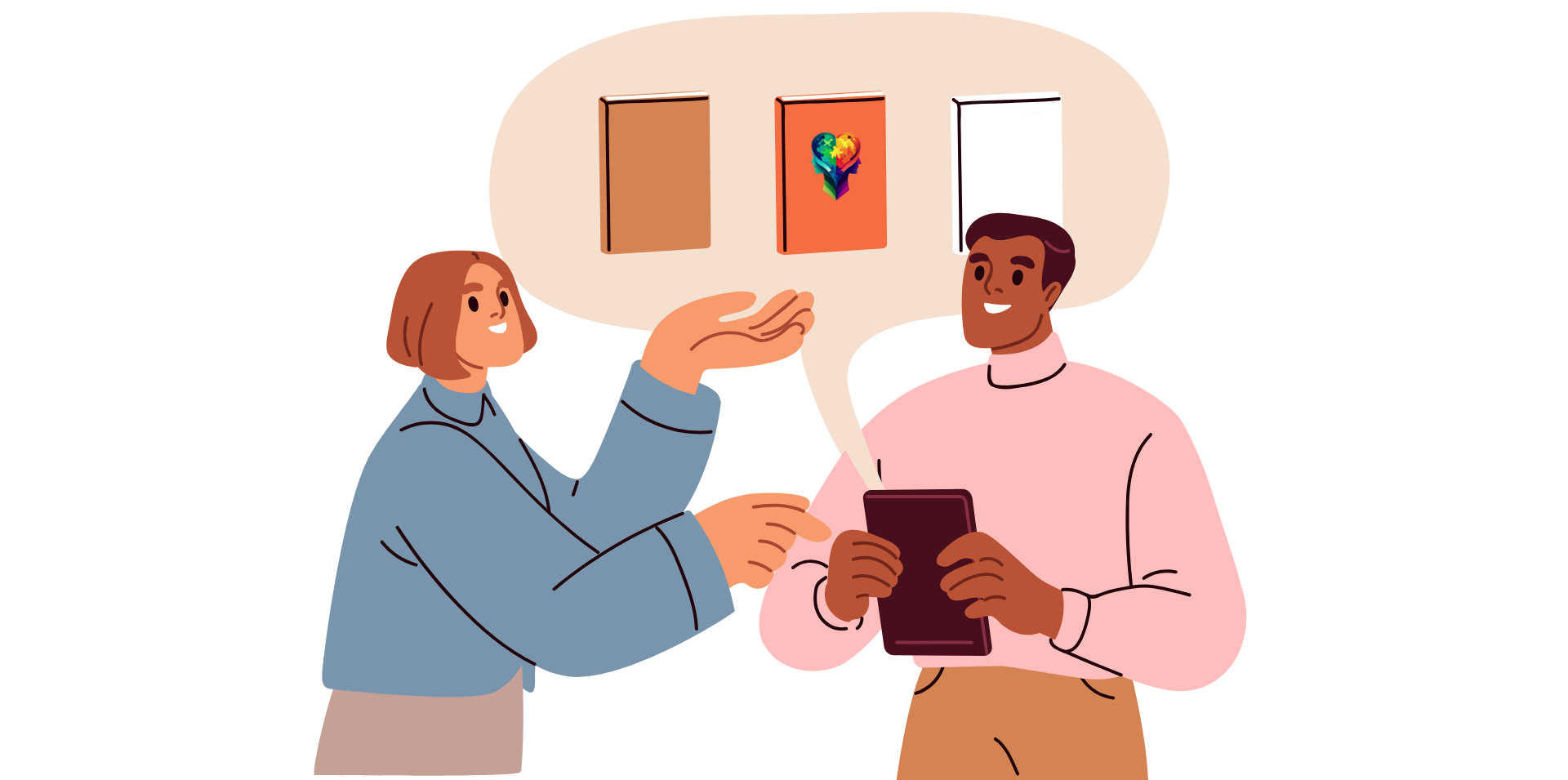Neurodiverse Couples Therapy & Coaching
Neurodiverse Couples Therapy and Coaching:
Support for Love, Connection & Communication
You Are Unique. Your Relationship Is Unique.
You deserve therapy that recognizes and celebrates that uniqueness.
Welcome to a space designed specifically for neurodiverse couples navigating the layered realities of Autism (ASD), ADHD, and Complex Trauma (cPTSD) in love. Whether you’ve been together for decades or just starting out, you’re not here to be fixed—you’re here to be understood, empowered, and supported.

Why Neurodiverse Relationships Need a Different Approach
Traditional couples therapy often misses the mark for neurodivergent individuals and their partners. You may have already worked with therapists who “got it” in theory but not in practice—who overlooked shutdowns, misunderstood sensory overwhelm, or assumed “communication issues” were simply about trying harder.
Neurodiverse couples require a therapist who deeply understands the lived realities of:
-
Communication breakdowns between direct and nuanced styles
-
Sensory sensitivities that lead to withdrawal or shutdowns
-
Emotional labor overload and chronic misattunement
-
Repair attempts that miss the emotional target
-
Feeling “too much” or “never enough” in the relationship
I’ve lived this. I’ve studied this. I offer you both clinical insight and lived compassion.
What We Focus On in Therapy and Coaching
Every couple is different, but the core of our work together includes:
-
Navigating sensory needs, shutdowns, and meltdowns
-
Developing communication tools that work across neurotypes
-
Creating safety for emotional expression—even with alexithymia
-
Understanding how masking, RSD, or Cassandra Syndrome may be impacting your dynamic
- How to be a Healthy Adult in Relationships
-
Co-regulating and rebuilding trust after ruptures
Together, we’ll shift from confusion and frustration to clarity and connection.
Our Philosophy: Neurodiversity Is Not the Problem
Neurodiversity isn’t something to fix—it’s something to understand, accommodate, and celebrate. I don’t see your differences as dysfunctions. I see them as opportunities to build new relational tools that actually work for you both.
Through a neurodiversity-affirming lens, we explore how each partner’s brain and nervous system processes information, emotion, and stress. From there, we co-create ways to build connection, compassion, and emotional presence, without requiring either of you to mask or perform.
Unraveling the Complexities Together
You might be managing:
-
Misattuned repair attempts
-
Executive function overwhelm
-
Emotional overfunctioning by one partner
-
Shutdowns mistaken for avoidance
-
Sensory overload misread as rejection
In our sessions, we’ll identify what’s really happening under the surface and develop practical, tailored strategies to navigate these moments with compassion and clarity.
We’ll also celebrate the strengths of neurodivergence—loyalty, integrity, creativity, deep focus—and create space for them to flourish in your relationship.
Challenges and Opportunities in Neurodiverse Relationships
Communication can be a major challenge when partners process and express thoughts, emotions, or sensory information differently. For example:
-
A partner with Autism may use precise, literal communication
-
A neurotypical partner may rely on tone, body language, or implication
These differences can lead to missed bids for connection, chronic misattunement, and emotional exhaustion.
But with the right support, these challenges become gateways to deeper growth. You’ll learn to:
-
Build emotional regulation skills
-
Decode each other’s signals
-
Practice presence over perfection
-
Create repair rituals that actually work
Embracing Neurodiversity as a Strength
Your brains may be wired differently, but that doesn’t mean your relationship can’t be strong, fulfilling, and joyful. In fact, neurodiverse relationships often have:
-
Profound honesty
-
Creative problem-solving
-
Unique intimacy
-
Deep dedication
This work is about shifting from tension to teamwork, so both partners feel valued, understood, and safe.
Support for Each Partner
For the Neurodivergent Partner
You might struggle with shutdowns, sensory overload, or feeling like you’re constantly being told to do love “the right way.” Maybe you’ve been accused of not caring enough—when inside, you’re trying your hardest just to stay regulated.
You don’t need to be fixed. You need someone who truly understands how your brain processes emotion, stress, and connection. Someone who recognizes the unique ways you experience the world and can offer support that honors your individuality. It’s about finding understanding and guidance that meets you where you are, not forcing you into a one-size-fits-all solution.
Together, we’ll help you:
-
Reduce masking and create sustainable presence
-
Express emotion in a way that feels natural, not forced
-
Build trust with your partner from a place of regulation
-
Reconnect with your own needs and values—without shame
For the Neurotypical Partner
If you’re the neurotypical partner, you may feel confused, exhausted, or emotionally invisible. You’ve likely spent a lot of time compensating, caretaking, or second-guessing your needs. Maybe you’ve wondered if you’re just “too sensitive”—you’re not.
You’re often holding the emotional labor of the relationship, carrying the weight of ensuring things run smoothly and trying to keep the connection alive, all while feeling like you’re never being fully seen. I see that. I honor that.
In therapy, you’ll:
-
Be supported in expressing your needs—without guilt
-
Learn how to get through when your partner shuts down
-
Understand sensory, processing, or emotional differences without abandoning yourself
-
Rebuild emotional intimacy from a place of truth, not performance
Relationship Dynamics: Embracing Your Unique Dance
Neurodiverse relationships come with beautiful complexity. You might be navigating:
-
Different social bandwidths
-
Sensory mismatch or environmental needs
-
Emotional intensity vs. flat affect
-
Processing time differences or looping thoughts
-
Conflict styles that feel like “ships passing in the night”
Our work is about de-shaming your dynamic, identifying what’s working, and reshaping what isn’t. Together, we’ll build new agreements, scripts, and strategies that reflect who you really are—and who you want to become as a couple.
Self-Care: The Invisible Lifeline of Neurodivgerence
Self-care is not a luxury in neurodiverse partnerships—it’s a survival tool.
Together, we’ll help you each:
-
Set sensory and emotional boundaries with compassion
-
Implement nervous system regulation tools (like havening, pacing, and grounding)
-
Create routines that reduce burnout and increase capacity
-
Identify when you need rest, not repair
Because when you’re over-functioning, connection becomes performance. And that’s not sustainable.
The Importance of Empathy and Effort in Marriage
In a neurodiverse partnership, empathy can look and feel very different. What might feel cold to one partner could actually be an attempt at problem-solving or regulation for the other.
We’ll practice:
-
Building bridges between intention and impact
-
Creating shared empathy rituals—even if expression differs
-
Understanding “emotional bandwidth” from a neurological lens
Effort means both partners are trying—but also supported in how they try. We’ll move away from blame and toward shared responsibility.
Building a Stronger Neurodiverse Relationship
What we build together:
-
Shared emotional language
-
Clear communication systems
-
Sensory-informed intimacy practices
-
Repair tools that work for your brains
-
Trust that both partners will be met with care
This is not about “fixing” either of you—it’s about building new ways to thrive together.
Our Love on the Autism Spectrum Core Values: Communication, DEIA, and Empowerment
Communication & Authentic Connection
Effective communication isn’t about using the “right words.” It’s about discovering your shared language—a way to express needs, boundaries, and emotions in ways both partners can hear, receive, and respond to.
Together, we’ll:
-
Explore your natural communication styles
-
Practice compassionate expression and attuned listening
-
Create scripts, signals, and structures that reduce conflict and build trust
You’ll walk away with tools that help both of you feel seen, safe, and understood.
Diversity, Equity, Inclusion & Accommodations
This practice is explicitly neurodiversity-affirming, trauma-informed, and anti-pathology.
That means:
-
Your differences aren’t deficits
-
Your story matters—without needing to be explained or justified
-
Your pace, processing style, and access needs will be respected
We’ll also challenge harmful norms together—whether it’s gendered emotional labor, masking for belonging, or perfectionism as protection.
This is your space to unmask, exhale, and rebuild your version of relational safety.
Individual and Relational Empowerment
Whether you’re the neurotypical partner or the neurodivergent one, your emotional experience matters. You don’t have to disappear to stay connected. And you don’t have to perform to be loved.
This work honors:
-
Your autonomy and boundaries
-
Your humanity and nervous system
-
Your relationship’s complexity and possibility
Let’s create a partnership that supports each of you as individuals—while strengthening the shared space between you.
Beyond the Sessions: Practical Tools for Everyday Use
You’ll leave sessions with:
-
Visual aids and diagrams
-
Communication templates
-
Scripts for repair and emotional check-ins
-
Somatic and nervous system practices
-
A co-created “relationship guidebook” for your unique dynamic
Do You Feel Misunderstood?
Many couples I work with have tried three or more therapists before finding someone who truly understands neurodiverse dynamics. If that’s your story, you’re not alone.
This is different.
We start from the nervous system up—not outdated assumptions. We acknowledge both the seen and unseen. And we co-create safety, connection, and compassion.
Is Neurodiverse Couples Therapy and Coaching Right for You?
What if only one of us wants to start therapy?
That’s okay. Many couples begin with one partner more invested. You don’t have to be “on the same page” to begin the journey.
What if we suspect Autism or ADHD but don’t have a diagnosis?
That’s welcome here. I work with many couples where the diagnosis is in question. I provide assessments for Autism and ADHD in California, and some of my clients pursue a diagnosis during couples therapy. I’m here to help you get your needs met!
Do you use tools, not just talk?
Yes. Sessions include actionable strategies, scripts, and resources. I also bring in an array of different modalities, tools, and techniques. My intention is to support you in the best way possible!
Can you help if other therapists couldn’t?
Yes. If you’ve felt unseen or dismissed in past therapy, this is where we begin again—with safety, respect, and real support. Many of my clients tell me that they’ve seen two to five therapists before they found me.
Your Journey Starts Here
You’ve tried to figure this out alone. You’ve tried to be patient, accommodating, and hopeful.
Now it’s time to feel supported.
“Take a breath.
Settle in.
I’m glad you’re here.”
–Barbara (Blaze) Lazarony, LMFT

